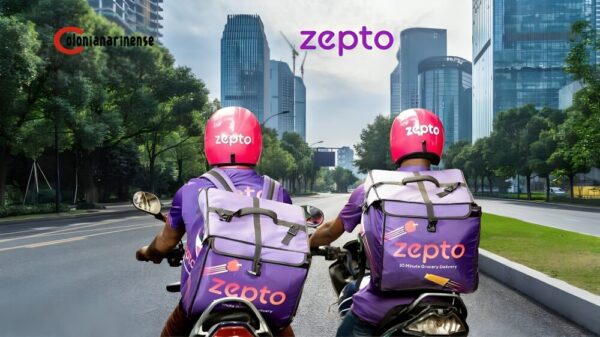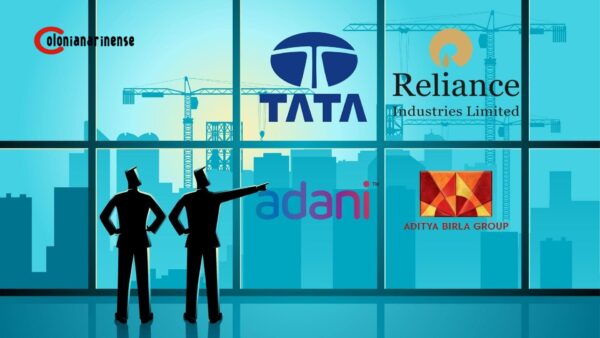Zepto Business Model: The grocery delivery market in India is booming, and companies like Zepto are at the forefront of this revolution. Changing consumer habits and the ease of online shopping have made services like Zepto a necessity for many people. Imagine having your groceries delivered to your door in just 10 minutes—yes, that’s exactly what Zepto promises. This Mumbai-based company is rapidly expanding and making life easier for busy people who don’t have the time to visit a store.
What Is Zepto?
Zepto was founded by two young Stanford dropouts, Aadit Palicha and Kaivalya Vohra, in September 2020. Like many people during the pandemic, they faced challenges with getting groceries delivered on time. Frustrated by long wait times, they came up with the idea for Zepto—a grocery delivery service that guarantees your groceries will arrive in 10 minutes. They officially launched the service in April 2021, and the company has been growing at an incredible pace ever since. Zepto Business Model
Zepto is all about speed and convenience. While some other services might promise 30-minute delivery, Zepto cuts that down to just 10 minutes, making it a game-changer for people with busy schedules.
Zepto Company Overview
| Aspect | Details |
| Full Name | Zepto |
| Founders | Aadit Palicha, Kaivalya Vohra |
| Founded | September 2020 (Launched April 2021) |
| Headquarters | Mumbai, India |
| Industry | Grocery Delivery |
| Background | Founded by two teenage Stanford dropouts to solve grocery delivery delays during the pandemic |
| Website | www.zeptonow.com |
Zepto’s Dark Store Business Model
Zepto operates using a “dark store” model. These are small, strategically located warehouses that aren’t open to the public but serve as fulfillment centers for online orders. Dark stores allow Zepto to stock a wide range of products and deliver them faster to nearby customers.
India’s e-grocery market is growing rapidly and is expected to be worth over $24 billion by 2025. Zepto is capitalizing on this growth by setting up dark stores in major metro areas, which allows them to promise 10-minute deliveries. These stores are optimized for quick packing and efficient order processing, thanks to AI-powered inventory management tools. Zepto Business Model
Zepto’s ability to deliver over 2,500 items in such a short time frame has been key to its success. They’ve grown quickly because of their commitment to fast, reliable service, which has helped them build a loyal customer base.
Benefits of Zepto’s Dark Store Model:
- No-Contact Shopping: Customers can order groceries online and receive them without ever entering a store or interacting with a person.
- Expanded Reach: Dark stores allow Zepto to place distribution hubs closer to where customers live, making delivery faster and more efficient.
- Improved Inventory Management: AI tools help Zepto maintain the right stock levels and offer a better product range.
- Efficient Distribution: With micro and cold storage facilities, Zepto can serve a variety of customer needs, including fresh produce and frozen items. Zepto Business Model
How Does Zepto Make Money?
Zepto’s revenue model is fairly simple. They earn a commission—about 2-3%—on every order placed through the app. This fee helps cover operational costs, ensuring the service runs smoothly.
In addition to commissions, Zepto charges customers a small delivery fee for their speedy service. Over the years, the company has raised over $360 million in funding across multiple rounds. Their latest funding round, Series D, raised $200 million, bringing the company’s valuation to $900 million as of May 2022. Zepto has been growing rapidly, with an 800% increase in revenue in the last quarter alone. Zepto Business Model
If they continue growing at this pace, Zepto is on track to hit a valuation of $1 billion by March 2024, making them a potential unicorn in the Indian startup ecosystem.
Conclusion
Zepto has disrupted the grocery delivery market in India by offering unmatched speed and convenience. With its innovative dark store model and focus on quick delivery, the company is changing how people shop for groceries. Their success has attracted significant investment, helping them expand their reach in metro areas. For now, Zepto charges a commission on each order and offers a reliable, super-fast service that has made it one of the most exciting companies in India’s grocery delivery sector. Zepto Business Model
FAQs about Zepto Business Model
What makes Zepto different from other grocery delivery services?
Zepto promises grocery deliveries within just 10 minutes, whereas most competitors offer 30-minute or same-day delivery. Their unique dark store model allows them to fulfill orders faster by placing small warehouses closer to customers.
How does Zepto deliver groceries so quickly?
Zepto uses dark stores—small, local warehouses that are not open to the public—to stock items and quickly fulfill orders. These stores are optimized for fast packing and delivery, ensuring customers receive their groceries in just 10 minutes.
Does Zepto charge for delivery?
Yes, Zepto charges a small delivery fee. In addition, they earn a commission of 2-3% on every order placed through the app.
Where does Zepto operate?
As of now, Zepto operates in major metro cities in India. They are continuously expanding to reach more customers.
Who founded Zepto?
Zepto was founded by Aadit Palicha and Kaivalya Vohra, two teenage Stanford dropouts, who started the company during the COVID-19 pandemic to solve grocery delivery delays.




